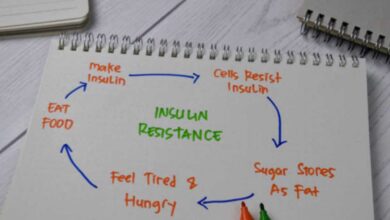
Feeling constantly drained and lethargic is extremely commonplace in modern society. Whilst temporary dips in energy levels are normal, ongoing fatigue can significantly impact daily function and overall quality of life. Understanding the complex interplay of factors influencing your vitality empowers you to implement positive lifestyle changes.
Overall, simple tweaks across multiple facets of daily living can add up to create an energising environment for your body and mind to thrive in. Commit to self-care and you’ll be on your way to reaching vibrant wellbeing.
Understanding Low Energy: A Comprehensive Overview
Fatigue refers to mental or physical exhaustion, where carrying out tasks feels more laborious. Whilst occasional tiredness is normal, ongoing low energy levels can indicate potential health or lifestyle issues needing attention.
Determining the origins of fatigue requires an analysis of all aspects of health. For effective remedies, the interrelationship between nourishment, activity, sleep quality, stress levels and health status must be considered. Often, suboptimal lifestyle factors accumulate to drain vitality. However, fatigue can also result from clinical illnesses requiring medical treatment.
Vague sensations of low energy, unfortunately, offer limited diagnostic insight. Symptoms manifest differently depending on the individual. However, patterns like unrelenting tiredness upon waking or disproportionate exhaustion from effort should prompt investigation. Utilising a fatigue diary documenting experiences alongside habits can uncover revealing connections.
The Impact of Poor Sleep Quality on Your Vitality
Sleep forms the foundation for optimal health, with a lack of quality sleep hugely detrimental to well-being. Even marginal reductions nightly can accumulate into a substantial sleep deficit, leaving you sluggish regardless of other healthy habits implemented.
Whilst sleep requirements differ amongst individuals, most adults need between 7-9 hours nightly. Consistently obtaining fewer hours prevents your body from fully restoring itself, depleting energy reserves in muscles and organs. Disrupted sleep also impairs the production of vital hormones regulating appetite and metabolism, furthering fatigue.
Inadequate sleep harms critical thinking and emotional regulation. Consequently, you’re less equipped to manage additional stressors, resulting in quicker energy expenditure from demanding tasks. Consider tracking sleep duration and efficiency alongside energy levels to determine whether fatigue correlates to lost restful hours.
Nutritional Deficiencies and Their Role in Fatigue
Diet provides the raw ingredients to produce cellular energy. Hence, chronic nutritional deficits often manifest as inexplicable exhaustion. Deficiencies in iron, vitamin D, vitamin B12 and omega-3 fatty acids most commonly link to low energy levels.
Inadequate iron inhibits oxygen circulation essential for powering bodily processes. Vegans, vegetarians, and those with heavy menstrual bleeding have greater iron needs. Vitamin B12 and vitamin D also aid red blood cell formation, with deficiency causing symptoms mirroring chronic fatigue syndrome. Omega-3 fatty acids support vital neurotransmitter balance influencing mental fatigue.
Whilst testing can confirm suspected deficiencies, even a suboptimal diet with reliance on processed convenience foods ultimately fails to energise. Focus on a colourful, whole-food diet with adequate protein intake as the nutritional foundation for combating fatigue holistically. Keep hydration levels high and limit pro-inflammatory foods to optimise energy extraction from meals.
Hydration: The Often-Overlooked Factor in Sustaining Energy
Dehydration is an extremely prevalent yet overlooked contributor to feeling depleted. Water comprises over 60% of body composition, emphasising its necessity for energising biochemical reactions. Fatigue is amongst the earliest cues signalling inadequate hydration.
Seeking water only when thirst strikes proves an insufficient gauge for hydration needs. Thirst represents existing fluid deficits, whereby your cells and organs are already desiccated. Additionally, the thirst mechanism becomes impaired with ageing. Optimal intake is highly individual and dependent on health status, climate, and physical exertion levels.
How Stress and Anxiety Contribute to Energy Depletion
Though rarely considered an energy-draining factor, chronic stress significantly saps vitality. Whilst acute stress mobilises the fight-or-flight response for temporary activity bursts, ongoing psychological strain exacts a toll metabolically. As the stress hormone cortisol remains elevated, processes unrelated to the perceived threat become neglected.
Sleep quality diminishes, blood sugar regulation worsens, inflammation increases, and fatigue ensues from continual cortisol exposure. Additionally, repetitive worrying thoughts emotionally tax the mind, exhausting mental reserves further. Those with anxiety disorders tend to experience particularly precipitous energy highs and crashes.
Implementing meaningful stress relief habits can counteract drain. Activities like light yoga, meditation, walking in nature and leisure hobbies prompt relaxation. Be mindful of self-imposed pressures around work and responsibilities contributing to overwhelm. Seek professional counselling for anxiety management strategies, too, if lifestyle changes prove inadequate. By nurturing inner calm, you preserve energy for pursuits more aligned to your well-being.
Essential Lifestyle Changes That Can Have a Big Impact
Whilst no singular adjustment guarantees enhanced energy, small daily improvements across lifestyle realms compound over time. An analysis of current habits identifying draining aspects enables targeted refinement. Alongside adequate sleep and nutrition, factor in mental health influences, activity levels and environmental pollutants. Habits like smoking can have a negative impact on your energy levels – using quitting smoking aids is the best option.
Align evening routines to support quality sleep by limiting electronics whilst scheduling morning exercise to avoid later procrastination. Batch cook nutrient-dense meals weekly to prevent grabbing convenience snacks between obligations. Build respite between demanding tasks. Swap household cleaners for natural alternatives to minimise indoor air pollution and associated inflammatory responses.
Stay mindful that progress outpaces perfection. Lapses don’t necessitate abandoning beneficial new practices. Over weeks, the sum of modest lifestyle shifts creates an ecosystem promoting vibrancy rather than drain. Be patient with your body’s adaptation and trust the process. Vitality often comes from multiple modifications made manageably and meaningfully.
The Influence of Physical Activity on Energy Levels
Though counter-intuitive when fatigued, regular exercise strongly correlates to enduring energy. Sedentary lifestyles promote muscle loss and impaired mood-regulating neurotransmitters – both of which increase perceived exhaustion. However, partaking in consistent physical activity cultivates cardiovascular health, neurochemical balance, and general resilience.
How one moves matters, too. Whilst intensive training temporarily boosts vigour through stress hormone release, it simultaneously causes micro muscle tears requiring recovery. This inflames the body, eventually necessitating rest days for energy restoration and preventing over-training. Conversely, yoga, Pilates, walking or dancing gently stimulate the stress response, elevating mood without taxing resources.
Aim for activities that feel nourishing rather than depleting by listening inwardly. Pursuing movement you sense strengthens your state emotionally, too. Whether cycling outdoors immersed in nature or group fitness for social connection, ensure sustainability through enjoyment. Move because it energises you, not solely to expend calories or sculpt your physique.
The Role of Hormonal Imbalances in Energy Fluctuations
As potent regulators of bodily processes, hormone levels significantly impact energy experience. Those with imbalances in thyroid, sex or stress hormones often struggle with depleted reserves despite following healthy lifestyle practices. Symptoms manifest differently depending on the hormone system disruption.
For example, an underactive thyroid reduces cell energy production itself, slowing metabolism and causing deep body fatigue. Deficient sex hormones like low testosterone or oestrogen undermine stamina to undertake physical and mental exertion. Whilst excess stress hormones prompt wired, erratic energy ungrounded by sufficient recovery periods. Determining the origin means considering dietary habits, exposure to endocrine disruptors and chronic stress levels.
Summary
Depleted energy levels seldom link to a single culprit. Often, an accumulation of suboptimal lifestyle factors spanning nutrition, activity, sleep, and stress combine to drain vital reserves. Carefully tracking symptoms and daily practices provides revealing connections to guide modifications. Be patient in building momentum gradually. Seeking blood work allows deficiencies in key nutrients like iron, vitamin B12 and D to be corrected through diet enrichment or supplementation. For some, reducing inflammatory foods provides increased vigour. Optimising sleep and mindfulness habits enables energy restoration from demands. Movement builds resilience whilst listening to bodily needs.







